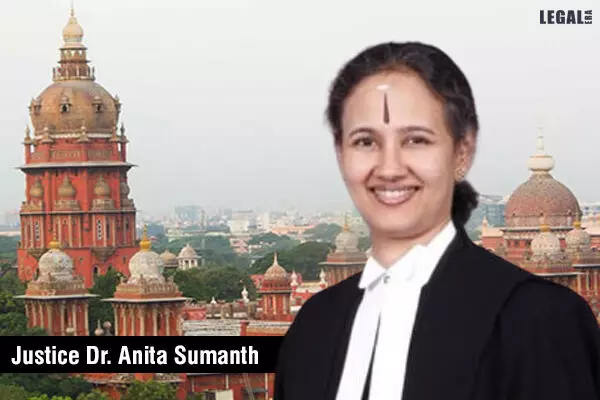- Home
- News
- Articles+
- Aerospace
- Artificial Intelligence
- Agriculture
- Alternate Dispute Resolution
- Arbitration & Mediation
- Banking and Finance
- Bankruptcy
- Book Review
- Bribery & Corruption
- Commercial Litigation
- Competition Law
- Conference Reports
- Consumer Products
- Contract
- Corporate Governance
- Corporate Law
- Covid-19
- Cryptocurrency
- Cybersecurity
- Data Protection
- Defence
- Digital Economy
- E-commerce
- Employment Law
- Energy and Natural Resources
- Entertainment and Sports Law
- Environmental Law
- Environmental, Social, and Governance
- Foreign Direct Investment
- Food and Beverage
- Gaming
- Health Care
- IBC Diaries
- In Focus
- Inclusion & Diversity
- Insurance Law
- Intellectual Property
- International Law
- IP & Tech Era
- Know the Law
- Labour Laws
- Law & Policy and Regulation
- Litigation
- Litigation Funding
- Manufacturing
- Mergers & Acquisitions
- NFTs
- Privacy
- Private Equity
- Project Finance
- Real Estate
- Risk and Compliance
- Student Corner
- Take On Board
- Tax
- Technology Media and Telecom
- Tributes
- Viewpoint
- Zoom In
- Law Firms
- In-House
- Rankings
- E-Magazine
- Legal Era TV
- Events
- Middle East
- Africa
- News
- Articles
- Aerospace
- Artificial Intelligence
- Agriculture
- Alternate Dispute Resolution
- Arbitration & Mediation
- Banking and Finance
- Bankruptcy
- Book Review
- Bribery & Corruption
- Commercial Litigation
- Competition Law
- Conference Reports
- Consumer Products
- Contract
- Corporate Governance
- Corporate Law
- Covid-19
- Cryptocurrency
- Cybersecurity
- Data Protection
- Defence
- Digital Economy
- E-commerce
- Employment Law
- Energy and Natural Resources
- Entertainment and Sports Law
- Environmental Law
- Environmental, Social, and Governance
- Foreign Direct Investment
- Food and Beverage
- Gaming
- Health Care
- IBC Diaries
- In Focus
- Inclusion & Diversity
- Insurance Law
- Intellectual Property
- International Law
- IP & Tech Era
- Know the Law
- Labour Laws
- Law & Policy and Regulation
- Litigation
- Litigation Funding
- Manufacturing
- Mergers & Acquisitions
- NFTs
- Privacy
- Private Equity
- Project Finance
- Real Estate
- Risk and Compliance
- Student Corner
- Take On Board
- Tax
- Technology Media and Telecom
- Tributes
- Viewpoint
- Zoom In
- Law Firms
- In-House
- Rankings
- E-Magazine
- Legal Era TV
- Events
- Middle East
- Africa
Madras High Court in Aircel Insolvency: Once Resolution Plan Stands approved by the NCLT, all Claims stand frozen

Madras High Court in Aircel Insolvency: Once Resolution Plan Stands approved by the NCLT, all Claims stand frozen
The Madras High Court in the matter of Aircel Cellular Ltd. vs. Union of India and others ruled that claims or reliefs that were not a part of the resolution plan under the Insolvency and Bankruptcy Code, 2016 (in short IBC) cannot be claimed after the said plan was duly approved by the adjudicating authority- National Company Law Tribunal (in short NCLT).
In the aforementioned case, the petitioner's company- Aircel Cellular Ltd now insolvent telecom company, had filed a petition that had challenged demand notices raised by the Central government's Department of Telecommunications (in short DoT) in 2013 for the license granted to the company for the Chennai Metro Circle.
In February 2018, Aircel had filed an application under Section 10 of the IBC for initiating the insolvency resolution process after it failed to repay its loans.
On June 9, 2020, the NCLT approved a resolution plan for Aircel, submitted by asset reconstruction firm UV ARCL.
Later, the petitioner had contended that while approving its resolution plan under the IBC, the NCLT, Mumbai bench, had taken note of the Department of Telecommunication's claims. Therefore, any attempt by the DoT to continue claiming dues through previous demand notices must be held as illegal, Aircel contended.
Further the petitioner submitted documents to prove that in June 2020 order, the NCLT had calculated the claims of its operational creditors including the DoT at a slight over Rs. 2,703 crore. From this amount, Rs. 27.85 crore was admitted and the amount provided under the plan was Rs. 25 lakh.
The single judge, Justice Dr. Anita Sumanth accepted the submissions forwarded by the petitioner and ruled that once a resolution plan had been approved by NCLT under Section 31(1) of the IBC, the claims in the plan become binding on the corporate debtor as well as its employees, members, and creditors, including all Central and State government authorities.
Thus, any claim, which is not part of such resolution plan will not be considered the plan is approved, the Court said.
Further no proceedings can either be initiated nor be continued in respect of a claim, which was not part of the resolution plan, the Court stated in its order.
"Thus, once the resolution plan stands approved by the NCLT, all claims stand frozen, and no claim, which is not a part of the resolution plan, survives. In the present case, the claim of the respondents has not only been noted, but also has been accepted, in part. Recording the above, this writ petition is closed," the order said, while allowing the writ petition.



